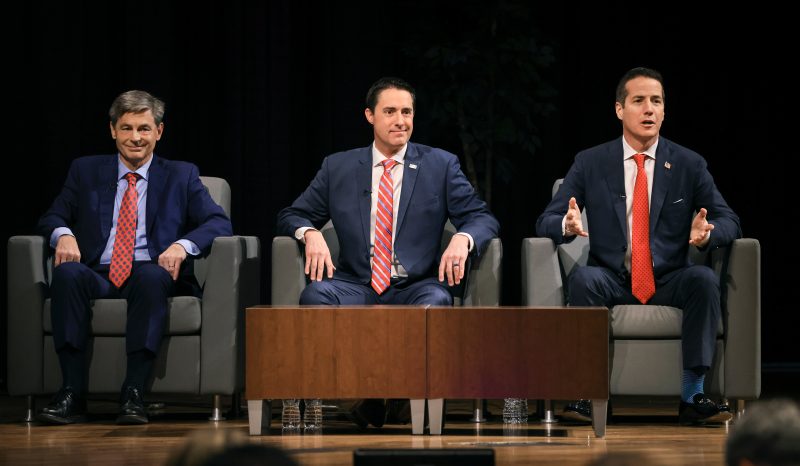When it comes to political races, things can get intense. As Donald Trump visited Ohio to support Mike Gibbons in the GOP Senate race against Josh Mandel, the battle quickly escalated, taking a remarkably personal turn. However, this is not the first time that politics has descended into a heated exchange of personal attacks.
In the realm of politics, attacking opponents on a personal level is not a new tactic. The pressure and competition of a political race can often lead candidates to resort to mudslinging in an attempt to discredit their rivals. By targeting personal matters rather than focusing on policy differences, candidates aim to sway public opinion and gain an advantage in the race.
While personal attacks may be effective in garnering attention and stirring up controversy, they can also have negative repercussions. When political discourse devolves into personal attacks, it diverts attention from the real issues at hand. Voters may become disillusioned with the political process, feeling that the focus has shifted away from important policy debates.
Moreover, personal attacks can damage the reputation and credibility of the candidates involved. Engaging in mudslinging can make a candidate appear petty and unprofessional, undermining their ability to garner support from the electorate. In the long run, resorting to personal attacks may backfire and harm a candidate’s chances of winning the race.
In the case of the GOP Senate race in Ohio, the escalation of personal attacks between Mike Gibbons and Josh Mandel reveals the high-stakes nature of political competition. As the candidates vie for the support of voters and influential figures like Donald Trump, tensions run high, leading to increasingly aggressive tactics.
Ultimately, the decision to engage in personal attacks in a political race comes down to strategy and ethics. While some candidates may see value in using such tactics to gain an advantage, others may prioritize conducting a clean and issue-based campaign. At the end of the day, voters play a crucial role in determining the outcome of an election, and how they respond to personal attacks can shape the course of a political race.
In conclusion, while personal attacks have become a common feature of modern political campaigns, candidates should carefully consider the potential consequences of such tactics. By focusing on substantive issues and presenting a positive vision for the future, candidates can build trust with voters and demonstrate their suitability for office. Ultimately, the key to a successful campaign lies in engaging in a respectful and substantive debate that honors the democratic process and respects the electorate.

